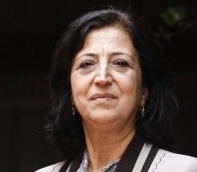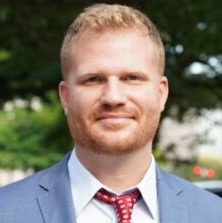Syria and the United States After Assad
For over 13 years, the Syrian civil war raged on until Bashar al-Assad fled to Russia over the weekend. By 2018, the Assad regime appeared to have secured its survival, with U.S. Army General Joseph Votel testifying to Congress that it was fair to say Assad had “won” the civil war with the help of Russian and Iranian forces. By 2024, regional Arab governments were poised to normalize relations with Assad.
In a stunning turn of events, Hayat Tahrir al-Sham (HTS), led by Abu Mohammed al-Jawlani, advanced from its stronghold in Idlib to seize Damascus. Although HTS is designated a terrorist organization by the U.S., Jawlani claims to embrace modern governance and reject extremism. Many Syrians are celebrating the end of Assad’s brutal rule, but the future remains uncertain. How will the U.S. engage with the new Syrian leadership? What will happen to the growing captagon drug trade? What are the implications for Israel, Iran, and Hezbollah? What will be the fate of the roughly 900 U.S. troops and their Kurdish partners in northeastern Syria?
The Quincy Institute held a discussion regarding what the end of Assad’s rule means for Syrians and the United States, featuring Steven Simon, senior research fellow at the Quincy Institute, Sinam Sherkany Mohamad, chief of mission of the U.S. Mission of the Syrian Democratic Council, and Caroline Rose, director of the Strategic Blind Spots Portfolio at the New Lines Institute. Adam Weinstein, deputy director of the Middle East program at the Quincy Institute, moderated.
Program
Countries/Territories
Entities
Panelists

Steven Simon
Steven Simon is a senior research fellow at the Quincy Institute and distinguished fellow and visiting professor at Dartmouth College. Prior to this, he was Robert E. Wilhelm Fellow at the MIT Center for International Studies and Executive Director of the International Institute for Strategic Studies for the U.S. and Middle East. From 2011 to 2012 he served on the National Security Council staff as senior director for Middle Eastern and North African affairs. He also worked on the NSC staff 1994 – 1999 on counterterrorism and Middle East security policy. His most recent book, "Grand Delusion: The Rise and Fall of American Ambition in the Middle East", was published in 2023.

Sinam Sherkany Mohamad
Sinam Sherkany Mohamad is the representative of the Syrian Democratic Council (SDC) mission in the United States. She is a top diplomat of the Autonomous Administration of North and East Syria (AANES) in Syria and also serves on the SDC Presidential Council. Ms. Mohamad has served the Kurds of Syria in leadership positions for a decade. She is a founding president of the People’s Council of Rojava, also known as Western Kurdistan. The People’s Council was founded in 2011, during the first year of the uprising against the Syrian government, at the outset of the Arab Spring. Then, the People’s Council of Rojava served as the governing organization in areas that were liberated from the Syrian government in northern and eastern Syria.

Caroline Rose
Caroline Rose is the Director of the Strategic Blind Spots Portfolio at the New Lines Institute, where she leads research on defense, security, illicit trades, and geopolitics across Europe, the Middle East, and North Africa. Her work includes two key projects: the Project on the Captagon Trade and the Project on Post-Withdrawal Security Landscapes. Since fall 2023, Rose has also served as an Adjunct Assistant Professor at Georgetown University’s School of Foreign Service, teaching graduate courses on illicit economies, armed conflict, and insecurity.

Adam Weinstein
Adam Weinstein is deputy director of the Middle East Program at the Quincy Institute. He previously worked for KPMG’s international trade practice. Adam’s current research focuses on security, trade, and rule of law in Afghanistan, Pakistan, and the Middle East. He has conducted extensive research travel in Pakistan, Iraq, and the greater Middle East. He is also a non-resident fellow at Tabadlab, an Islamabad based think tank and advisory firm. Adam served as a U.S. Marine and deployed to Uruzgan Province Afghanistan in 2012.


